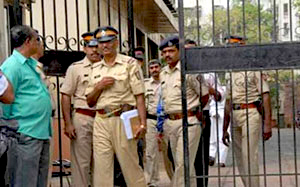Bengaluru, Mar 23: Karnataka Health Minister B Sriramalu on Monday confirmed that there are 27 positive coronavirus cases in the state so far.
A fresh COVID-19 positive case has been reported from Mysore today.
"One hospital in every district is dedicated to COVID-19 treatment. We have placed an order for 1000 ventilators. We have also ordered 10 lakh N90 mask, five lakh PPE testing kits, 15 lakh three-layer masks. Sanitizers and thermal scanners will also be purchased on-demand," said Sriramalu while addressing a press conference here.
The Karnataka Health Minister said that decision will also be taken to purchase lab testing kits and equipment.
Meanwhile, Dr Ashwath Marayan, Deputy Chief Minister, Karnataka said that all necessary measures are being taken to contain the spread of COVID-19.
"We will take important decisions as soon as possible. 80 per cent of the companies are following work from home. Critical and essential things should be provided in this situation and we have kept them available to serve the people," said Marayan.
"We have taken all the required decisions including the logistics and supply. Social distancing is much important and we will implement it," he added.
The total number of positive coronavirus cases in the country mounts at 415, according to the Indian Council of Medical Research (ICMR).






Comments
Check their backgrounds, may be they are members of ABVP
Need to be investigated for how long they have been helping Mahesh and Xpert colleges....they must have made millions as of now...
Add new comment